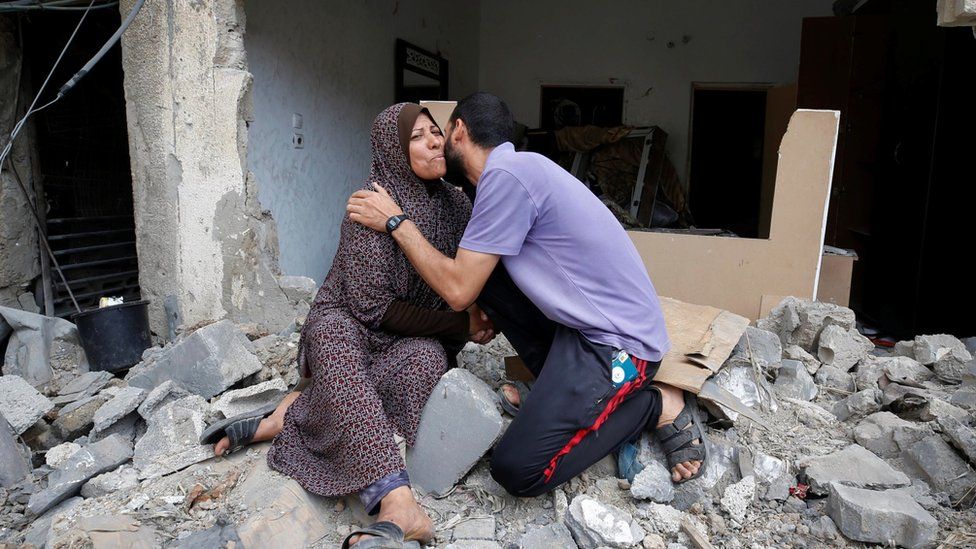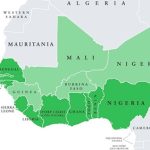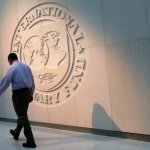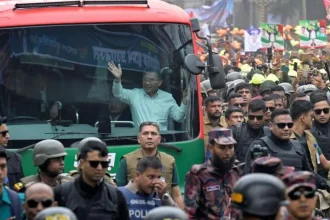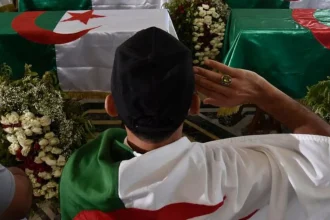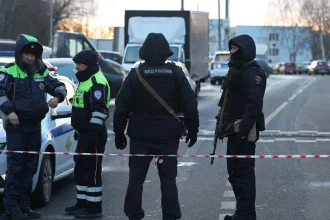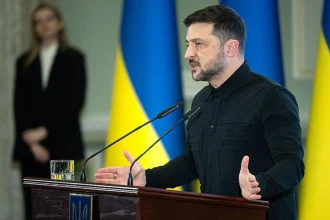A ceasefire between Israel and the Palestinian militant group Hamas in the Gaza Strip has come into effect.
The ceasefire began early on Friday, bringing to an end 11 days of fighting in which more than 250 people were killed, most of them in Gaza.
Palestinians poured on to the streets of Gaza soon after the truce began, while a Hamas official warned the group had not let down its guard.
Both Israel and Hamas have claimed victory in the conflict.
US President Joe Biden said the ceasefire had brought a “genuine opportunity” for progress.
Soon after it started at 02:00 on Friday (23:00 GMT on Thursday), large numbers of Palestinians took to the streets in cars and on foot to celebrate. In Gaza, drivers honked their horns, while loudspeakers from mosques pronounced “the victory of the resistance”.
Israel’s military said it was removing nearly all emergency restrictions on movement throughout the country.
Fighting broke out on 10 May after weeks of rising Israeli-Palestinian tension in occupied East Jerusalem that culminated in clashes at a holy site revered by both Muslims and Jews. Hamas began firing rockets after warning Israel to withdraw from the site, triggering retaliatory air strikes.
At least 243 people, including more than 100 women and children, were killed in Gaza, according to the Hamas-controlled health ministry. Israel has said it killed at least 225 militants during the fighting. Hamas has not given casualty figures for fighters.
In Israel 12 people, including two children, were killed, its medical service says.
The Israeli military says more than 4,300 rockets were fired towards its territory by militants and that it struck more than 1,000 militant targets in Gaza.
What have the two sides said about the truce?
The Israeli Political Security Cabinet said on Thursday night it had “unanimously accepted the recommendation” for a ceasefire.
“The political leaders emphasised that the reality on the ground will determine the future of the campaign,” it said.
Prime Minister Benjamin Netanyahu faced criticism from some in Israel who said he had halted the conflict too soon. The mayors of Sderot and Ashkelon – two of the Israeli towns hardest hit by rockets from Gaza – were among those to voice their disappointment, saying Hamas should have been eliminated.
At a news conference on Friday, the prime minister said Israel had “exacted a heavy price from Hamas”.
“Not everything is known to the public yet, nor to Hamas, but the full range of achievements will be revealed over time,” he said.
A Hamas official told the Associated Press news agency the ceasefire announced by Israel amounted to a “victory” for the Palestinian people.
This view was shared by people celebrating on the streets of Gaza. “This is the day of victory, the day of freedom, and it is the most beautiful day that we’ve experienced,” one said.
But Basem Naim, from the Hamas Council on International Relations, told the BBC he was sceptical about whether the truce would last “without justice for Palestinians, without stopping the Israeli aggression and Israeli atrocities”.
A member of Hamas’s political bureau, Izzat al-Reshiq, issued a warning to Israel.
“It’s true that the battle ends today but Netanyahu and the whole world should know that our finger is on the trigger and we will continue to ramp up the capabilities of this resistance,” he told Reuters.


